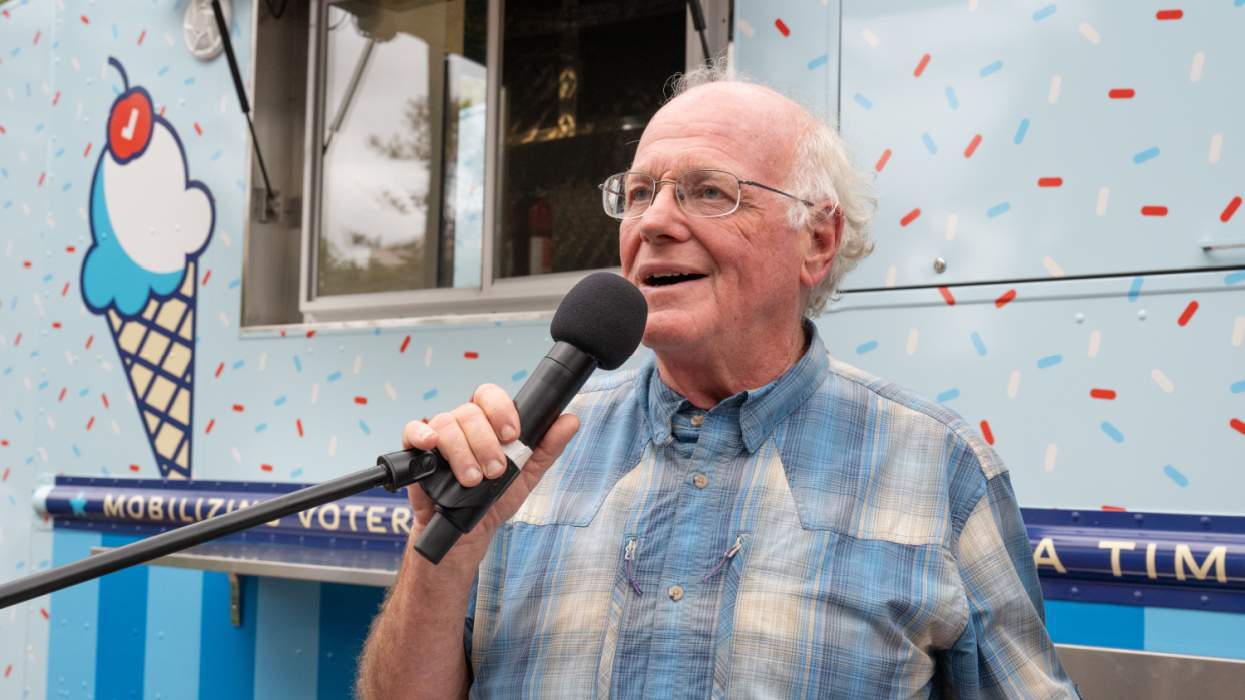Staff and faculty at Florida colleges can now be fired if they dare use the wrong bathroom even once. Two offenses will guarantee termination under a newly approved state regulation.
The Florida Board of Education on Wednesday approved new rules strictly enforcing a new law segregating public restroom facilities by gender. Under the new regulation, that restriction will apply even in college dormitories.
Florida Gov. Ron DeSantis signed a bathroom bill impacting all publicly owned bathroom facilities, one of several anti-LGBTQ+ laws enacted in the state this year. The bathroom law requires any publicly-owned facilities to restrict bathroom used based on gender assigned at birth.
But Carlos Guillermo Smith, outreach coordinator for Equality Florida, said the new rule impacting state colleges extends well past the requirements of the law.
“It mandates taxpayer-funded investigations into restroom usage in the Florida College system,” Smith said. “That was not in the original bill. It also expands the bill to include college dormitories, not in the original bill. It also requires that staff be fired on a second offense for using the bathroom that aligns with their gender identity.”
The new rule makes clear that if college officials deem it appropriate, a faculty or staff member could be fired on the first offense for peeing in the wrong room.
University advocates suggested the legislation could conflict with other protections such as tenure. It could also threaten accreditation for all of Florida’s colleges.
“You continue to come after your most marginalized Floridians, but we’re not going to keep taking it,” said Kate Danehy-Samitz, founder of Women’s Voices of SW Florida.
Ben Gibson, chair of the Florida Board of Education, said the rule-making board had little choice in adopting regulations.
“The state board is required to required by law to pass this rule and to provide for the requirements,” he said.
Kathy Hebda, chancellor of the Division of Florida Colleges, focused on requirements for any public facilities to have restrooms and changing clearly segregated for males and females. Any buildings built or bought since July 1 must prove they are in compliance with that new rule within a year. She also said the state’s college system must develop some type of regulatory enforcement of the law.
“The statute requires that Florida College System institution boards of trustees have to update their disciplinary procedures based on and they are subject to disciplinary actions established in State Board of Education rule,” she said.
The Florida board also imposed restrictions on bathrooms and locker rooms for all K-12 public schools in the state. Equality Florida also pointed to vague rules about punishing educators for “gross immorality” or “moral turpitude,” regardless of whether an individual has been charged with a crime.
The LGBTQ advocacy group also raised concerns about whether restrictions could impact school field trips that could involve drag performances, especially in the wake of a new law threatening venues that allow minors to drag shows.
Smith compared many of the restrictions to Jim Crow laws from decades past.
“The DeSantis administration has once again weaponized government against the LGBTQ community. The Florida State Board of Education imposed new attacks on transgender educators, administrators and students that go far beyond the scope of the anti-trans bathroom law,” he said in a statement after the meeting.
“ These threats of bathroom investigations, forced firing of personnel, and restrictions on dormitories in the Florida College System will only worsen the current culture of fear and intimidation against the transgender community. Everyone deserves the right to use the restroom facilities where they feel safe– including transgender Floridians. In our history, government attempts to create a system of second class citizens by restricting access to restrooms or water fountains have failed. They were defeated before and will be defeated again.”
The proposed restrictions drew a number of LGBTQ activists to Southwest Florida to speak out at the hearing.
“As a non-binary person growing up in Florida. I've often been told by those like yourself that I'm not valid, that my existence is not valid,” Lois Smith told board members. “My pronouns have not been respected based on claims that they are made up. Non-binary is not a made-up gender. But you know what is made up? This problem that you're pretending to solve? There's no need for legislation you are trying to pass. Students are not being harmed or harassed by trans and non-binary students in school bathrooms.”
She pointed to a UCLA study that showed schools with integrated bathrooms have no increase in violence or harassment, but those enforcing separate stalls see an uptick in harassment of transgender and non-binary individuals.
Jordan Beutel, a fourth generation educator living in Florida, said he decided not to teach in the Florida college system because of Florida’s increasingly intolerant work environment. He instead works now as a sales mentor for the University of Colorado Boulder.
“I'm an ideal candidate for your talent acquisition incentive program, and I have a bachelor's degree in secondary education and an MBA,” he said. “There's one glaring issue though. I'm trans, and you all continue to make it clear that you don't want trans educators in Florida.”















Charlie Kirk DID say stoning gay people was the 'perfect law' — and these other heinous quotes
These are some of his worst comments about LGBTQ+ people made by Charlie Kirk.